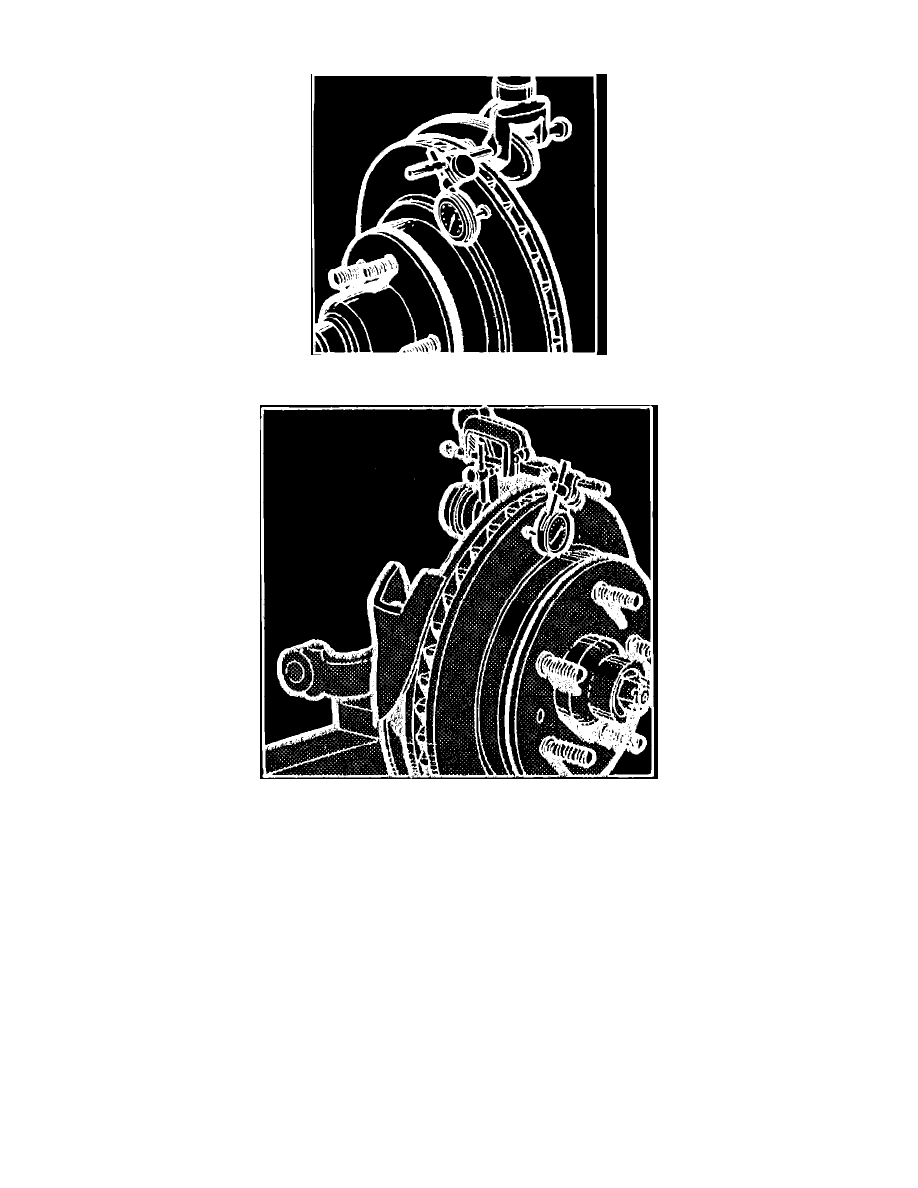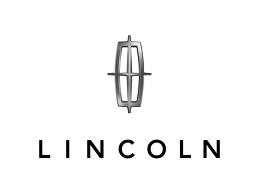Town Car V8-302 5.0L (1987)

Brake Rotor/Disc: Service and Repair
Fig. 2 Checking Rotor For Lateral Run-out
Fig. 2 Checking Rotor Parallelism (thickness variation)
Servicing of disc brakes is extremely critical due to the close tolerances required in machining the brake disc to insure proper brake operation.The
maintenance of these close controls of the shape of the rubbing surfaces is necessary to prevent brake roughness. In addition, the surface finish must be
non-directional and maintained at a micro inch finish. This close control of the rubbing surface finish is necessary to avoid pulls and erratic performance
and promote long lining life and equal lining wear of both left and right brakes. In light of the foregoing remarks, refinishing of the rubbing surfaces
should not be attempted unless precision equipment, capable of measuring in micro inches (millionths of an inch) is available.To check lateral runout of
a disc, mount a dial indicator on a convenient part (steering knuckle, tie rod, disc brake caliper housing) so that the plunger of the dial indicator contacts
the disc at a point one inch from the outer edge, Fig. 1. If the total indicated runout exceeds specifications, install a new disc. To check parallelism
(thickness variation), mount dial indicators, Fig. 2, so the plunger contacts rotor approximately 1 inch from outer edge. If parallelism exceeds
specifications, replace rotor.
